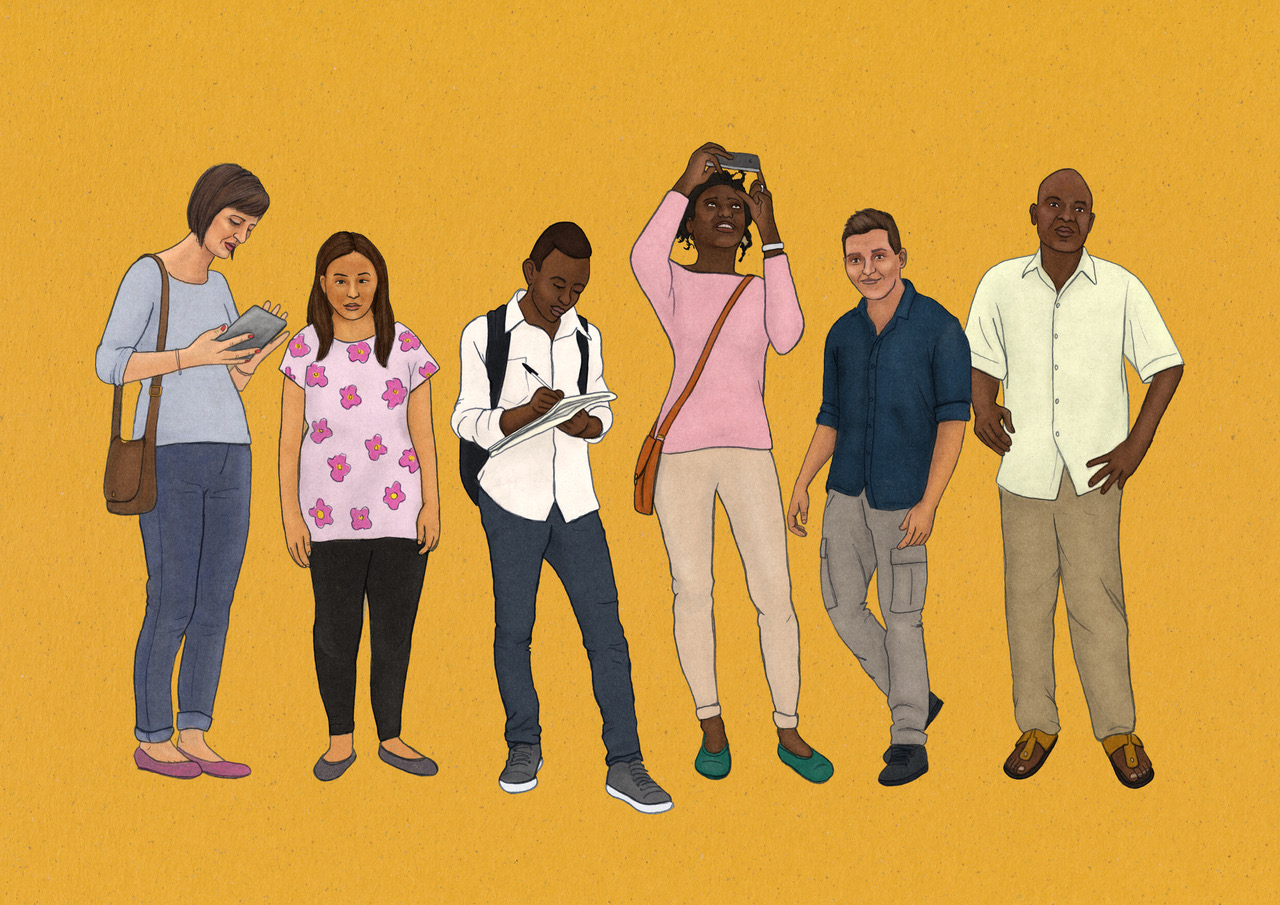Citizen monitoring
You can find them in countries in Africa, Asia, Europe and the Middle East. Some are in their 80s, others in their teens. Some are familiar with smartphones, while most haven’t used them before. All have a desire to uphold integrity in their community and society – and they are happy to do this voluntarily.


Well over 10,000 people from a wide variety of backgrounds have acted as citizen monitors within Integrity Action programmes since 2017. When a government or development organisation promises something to their community, the monitors are passionate about making sure that promise is kept. They identify problems with local services and projects, and then report and potentially upload their findings using digital tools. When issues have been addressed in a satisfactory way, this is reported too. As these “fixes” accumulate, things start to improve for communities in tangible ways, while valuable trust is built along the way.
People become monitors for many reasons. Many monitors want to solve pressing problems in their community, others see personal benefits to taking part.

How does citizen monitoring work?
This is a simplified version of how our citizen monitoring approach works - and remember, it can vary by location. If you’d like more information on the approach or to ask any questions, get in touch.
1. Involving citizens and duty bearers
At the start of the process we engage citizens to become monitors. This is the point at which the community also becomes aware of the monitoring initiative and decide the process by which monitors will be selected. Inclusion of citizens from diverse backgrounds is key, so citizens who are at risk of exclusion also become monitors. It is also essential to ensure that duty-bearers responsible for what will be monitored are aware and support the monitoring.
2. Citizens become monitors
Once the community is aware and supportive, the monitors have been chosen, and duty bearers are also on board, a group of citizens in a particular community is trained on monitoring. As well as how to use the mobile app, they learn how to engage constructively with key stakeholders, and what to do when it is difficult to get issues addressed.
3. What have we been promised?
When monitoring starts, monitors have to understand what has been promised in order to check whether it is being delivered or carried out according to plan. They are taught how to identify the relevant power holder and request documentation from them. This could be project plans, agreements or technical drawings – they are also trained how to check it and compare it to what is being delivered.
4. Monitoring projects or services
Citizens act as volunteers to monitor things like teacher attendance in schools or quality of materials in construction. Sometimes, monitors will be checking a project or service and will not find problems. If they do identify problems, these are reported in the mobile app.
5. Problem solving
It doesn’t finish when citizens report problems; monitors actively try to get the problems solved. They bring people together to do this and might take different approaches in different situations, such as collaborative meetings, engaging respected people in the community to help, or something else - this is something the monitors decide. Once a problem is solved this gets reported in the mobile app.
In any initiative, steps 4 and 5 keep repeating as monitoring continues.
6. What does the data say?
Data is a powerful tool in this approach. Across multiple projects and services being monitored, the data can highlight which problems are more systemic. It can also demonstrate which strategies are best for getting solutions. This data can be used to advocate for policy changes when solutions aren’t forthcoming at community level.
Alongside all of this, Integrity Action and partner organisations are listening to feedback from citizens and duty bearers, and learning lessons so we can make improvements as monitoring continues.
Inclusive monitor recruitment
We work with partner organisations who have a strong presence in communities. They use a range of approaches to recruit people to be monitors, including outreach, advertising, or inviting nominations.
Any cohort of monitors must represent the communities they come from, meaning they need to be balanced between men and women but also that people with disabilities should be represented and that people of different ages are present.
Integrity Action has a steadfast commitment to diversity. We strongly believe that a diverse cohort of monitors has a bigger impact because the problems they identify – and fix – will affect a broader range of people, including those who are marginalised. This approach is guided by our work on Gender, Social and Climate Justice.
To see how citizen monitors can monitor green projects, click here.
See monitoring in action on DevelopmentCheck.

